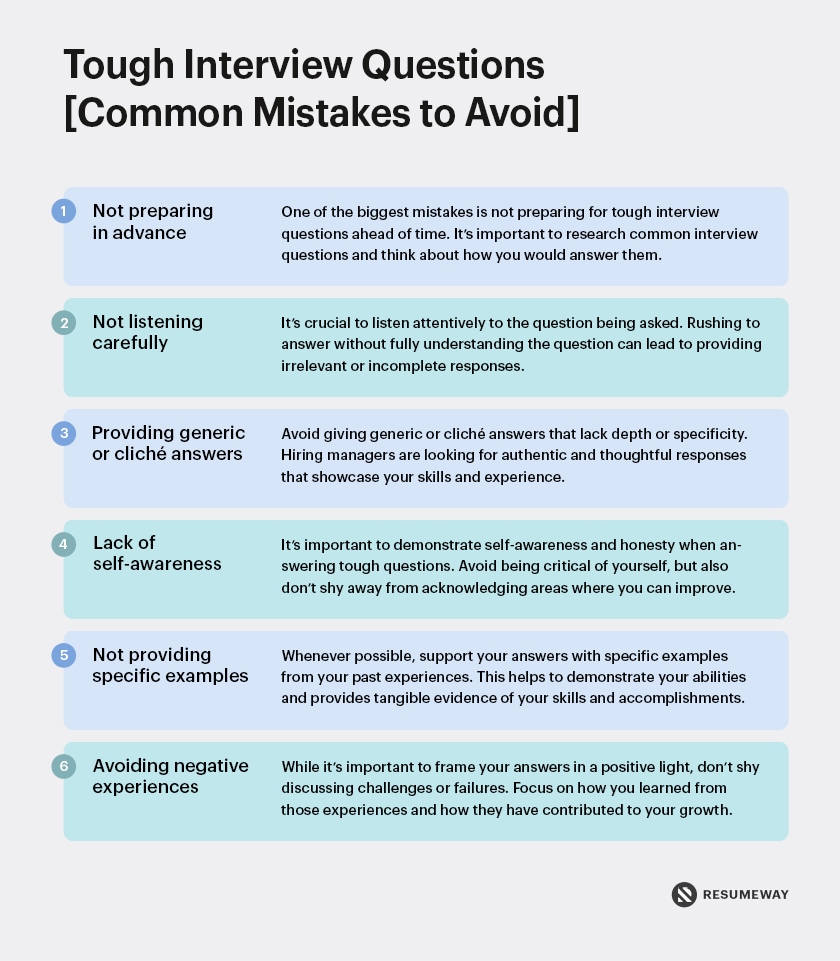In today’s competitive job market, it is more important than ever to use structured interview questions to hire the best talent. Structured interview questions are designed to help you assess a candidate’s skills, experience, and qualifications in a consistent and objective way. By using structured interview questions, you can ensure that you’re not only asking the same questions to each candidate but that you’re also getting the information you need to make a hiring decision.
In this guide, we will discuss the benefits of using structured interview questions, how to write them, and examples of questions you can ask. We will also provide tips for using structured interview questions and common mistakes to avoid.

Image Source: testgorilla.com
What are structured interview questions?
Structured interview questions are a set of questions that are asked to all candidates in the same order, using the same wording. This helps to ensure that all candidates are evaluated on the same criteria, and that there is no bias in the hiring process.
Structured questions are also more likely to elicit accurate and reliable information from candidates, as they are less likely to be swayed by the interviewer’s personal biases or opinions.
Benefits of using structured interview questions
There are many benefits to using structured interview questions, including:
- They help to create a fair and consistent interview process.
- They allow you to compare candidates more easily.
- They can help you to identify the best candidates for the job.
- They can help you to avoid making hiring mistakes.
Structured interview questions are also a valuable tool for training new interviewers. By using structured questions, you can help to ensure that all interviewers are asking the same questions and that they are using the same criteria to evaluate candidates. Overall, structured interview questions are a valuable tool for any recruiter or hiring manager who wants to hire the best possible candidates.
How to write structured interview questions
When writing structured interview questions, it is important to keep the following things in mind:
- The questions should be relevant to the job position.
- The questions should be open-ended and allow the candidate to provide detailed answers.
- The questions should be scored objectively.
- The questions should be free of bias.
Here are some tips for writing structured questions:
- Start by brainstorming a list of potential questions.
- Review the job description and identify the key skills and qualifications that the ideal candidate will have.
- Write questions that will assess the candidate’s ability to perform the job duties.
- Test the questions with a panel of judges to make sure that they are clear, concise, and objective.
Examples of structured interview questions
- Tell me about a time when you had to overcome a sales objection.
- What is your sales process?
- What are your top three sales strategies?
For a marketing role:
- What is your favorite marketing campaign that you have worked on?
- What are your top three marketing channels?
- How do you measure the success of your marketing campaigns?
For a technical role:
- What is your favorite programming language?
- What are your top three technical skills?
- How do you approach solving technical problems?
Tips for using structured interview questions
When using structured questions, it is important to keep the following tips in mind:
- Be prepared. Make sure you have a list of structured interview questions that you want to ask each candidate.
- Ask each candidate the same questions in the same order. This will help you to compare their responses and make a more informed decision.
- Listen carefully to the candidate’s responses. Pay attention to what they say, how they say it, and how they interact with you.
- Ask follow-up questions to clarify the candidate’s responses. This will help you to get a better understanding of their skills and experience.
- Be objective. Do not let your personal biases affect your decision-making process.

Common mistakes to avoid when using structured interview questions
When used correctly, structured interview questions can be a valuable tool for hiring the best talent. However, there are a few common mistakes that can make structured interviews less effective. Here are some of the most common mistakes to avoid when using structured questions:
- Using the same questions for every candidate
- Asking questions that are too vague or too specific
- Not giving candidates enough time to answer questions
- Not following up on candidates’ answers
- Making hiring decisions based on gut instinct
By avoiding these common mistakes, you can increase the effectiveness of your structured interview process and improve your chances of hiring the best talent for your team.
Hire Through Delta International Recruitment Agency
If you are looking for a way to improve your overseas hiring process, consider using structured interview questions. Delta International is the top notch Manpower Recruitment Agency for Romania that use structured interviews, which can help you identify the best candidates for your open positions.
They can also help you create your recruitment more equitable and make you hiring objective fulfil easily.




























